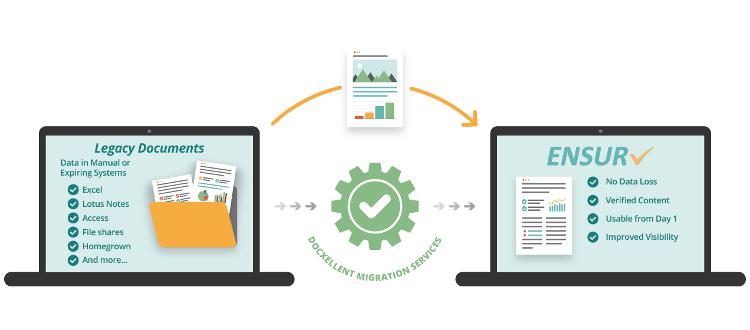
The 2023 PDA/FDA Joint Regulatory Conference was a highly-anticipated gathering for pharmaceutical professionals, regulatory experts, and industry stakeholders. Tailored specifically for professionals in the pharmaceutical and regulatory sectors, this article will offer a comprehensive overview of the conference, delivering key takeaways and critical insights. We'll guide you through the pivotal discussions, latest advancements, and regulatory updates that have the potential to shape the pharmaceutical landscape in the coming years. Read on to learn more.
An Overview of the 2023 PDA/FDA Joint Regulatory Conference
The 2023 PDA/FDA Joint Regulatory Conference took place in Boston, bringing together experts and professionals from the pharmaceutical and life sciences industry, as well as regulatory agencies. This annual gathering holds significant importance for the industry, serving as a platform for sharing knowledge, discussing regulatory updates, and exploring groundbreaking innovations.
The pharmaceutical and life sciences industry is at the forefront of improving human health, and the PDA/FDA conference is a cornerstone for fostering progress. It serves as an essential forum for stakeholders to discuss and adapt to the ever-evolving regulatory landscape and explore cutting-edge innovations that have the potential to revolutionize healthcare.
Keynote Sessions
The 2023 conference featured an impressive lineup of keynote speakers who are industry luminaries, regulatory experts, and thought leaders in their respective fields. Each keynote speaker provided a unique perspective on various aspects of the pharmaceutical and life sciences industry.
One such speaker, Dr. Patricia Johnson, the Director of the FDA's Center for Drug Evaluation and Research, discussed the vital importance of patient-centric drug development and regulation. She stressed the need for increased patient involvement in clinical trials and regulatory decision-making, highlighting the shift towards a more patient-focused approach.
Dr. David Mitchell, a renowned pharmacologist, delved into the role of artificial intelligence and machine learning in drug discovery and development. He emphasized that these technologies have the potential to significantly expedite the drug development process while enhancing accuracy through data-driven insights and analysis.
Impact on the Industry
The insights shared during the keynote sessions are expected to have a profound impact on the industry. The emphasis on patient-centric drug development will likely lead to more personalized treatments, aligning with the broader trend of precision medicine. The integration of AI and machine learning is poised to revolutionize drug discovery processes, making them more efficient and cost-effective.
Regulatory Updates and Implications
The conference served as a platform for presenting and discussing several significant regulatory updates. These changes encompassed various facets of the pharmaceutical and life sciences sector, including Good Manufacturing Practices (GMP) guidelines, expedited drug approval pathways, and updates on post-marketing surveillance.
Implications for Companies
It's crucial for pharmaceutical and life sciences companies to understand the implications of these regulatory changes. For example, expedited drug approval pathways offer the potential for faster market entry but require a thorough understanding of the associated risks, such as post-market safety monitoring. As GMP guidelines evolve, companies must adapt their manufacturing processes and quality control measures to meet the new standards.
Navigating the Regulatory Landscape
Navigating the evolving regulatory landscape necessitates a proactive approach. Companies must remain flexible, stay informed about regulatory changes through close collaboration with regulatory agencies, invest in advanced monitoring and quality control processes, and embrace innovative technologies such as AI and data analytics to ensure compliance and product quality.
Advancements in Quality Management
The conference provided a platform for experts to discuss cutting-edge quality management strategies and technologies. These innovations encompass real-time monitoring of manufacturing processes, AI-driven quality control, and blockchain-based supply chain tracking.
These innovative quality management strategies are instrumental in ensuring the safety and efficacy of pharmaceutical products. Real-time monitoring allows for immediate responses to quality deviations, reducing the risk of substandard products reaching the market. AI-driven quality control ensures high levels of precision and consistency, while blockchain-based supply chain tracking enhances transparency and traceability.
Quality management remains the cornerstone of the pharmaceutical industry, safeguarding public health by ensuring that products meet the highest standards. It plays a pivotal role in minimizing risks throughout the supply chain, bolstering public confidence, and maintaining regulatory compliance.
Innovations in Life Sciences
The conference also served as a showcase for an array of innovations in the life sciences sector. These innovations ranged from gene-editing techniques that hold the promise of revolutionizing personalized medicine to novel drug delivery systems designed to enhance patient compliance and overall treatment efficacy.
The innovations presented at the conference are poised to bring about a transformation in the life sciences industry. Gene-editing technologies have the potential to cure a range of genetic diseases, offering hope to countless patients who previously had limited treatment options. Innovative drug delivery systems can lead to improved treatment outcomes, enhanced patient compliance, and a more patient-centric approach to healthcare.
The conference featured several case studies demonstrating how companies have successfully implemented these innovations. For instance, a biotech startup showcased its gene therapy platform, which had already yielded life-changing results in clinical trials. This real-world evidence of successful implementation underscores the practicality and promise of these innovations.
Collaboration and Partnerships in the Industry
The conference underscored the critical importance of collaboration and partnerships in the life sciences sector. These partnerships can accelerate drug development, improve supply chain efficiency, and enhance regulatory compliance. Collaboration between industry players and regulatory agencies is vital for ensuring that new therapies and technologies meet the highest standards of safety and efficacy.
Building and maintaining effective partnerships requires a commitment to clear communication, transparency, and a shared vision. Regulatory agencies also play a vital role in fostering collaborative efforts, ensuring that industry and government work together seamlessly to drive innovation, uphold safety standards, and meet the evolving needs of patients and healthcare systems.
Predictions and Trends for the Future
This conference was not only a platform for discussing the present state of the pharmaceutical and life sciences industry but also a forum for envisioning its future. Several trends and predictions emerged during the conference, including:
- Telemedicine Revolution: Experts foresee a significant surge in telemedicine adoption, driven by advances in digital health technologies and the desire for more accessible healthcare. Telemedicine is expected to bridge the gap between patients and healthcare providers, offering convenience and improved healthcare delivery.
- Virtual Clinical Trials: Virtual clinical trials are poised to become the new norm in drug development. They promise to reduce patient burden, enhance data collection and analysis, and expedite the entire drug development process, ultimately bringing life-saving treatments to patients faster.
- Real-World Evidence (RWE) Dominance: The importance of real-world evidence in making regulatory decisions and healthcare policies is on the rise. RWE will play a pivotal role in ensuring that new therapies and treatments meet the highest standards of safety and efficacy by offering insights from real patient experiences.
How These Trends Are Expected to Shape the Future
The emerging trends and predictions highlighted at the conference are set to have a profound impact on the pharmaceutical and life sciences industry. The increased adoption of telemedicine will lead to more patient-centric and convenient healthcare. This shift not only benefits patients but also opens opportunities for companies to develop and implement digital health solutions that cater to the evolving needs of the healthcare ecosystem.
Virtual clinical trials will revolutionize the drug development process. By reducing the need for patients to be physically present at clinical trial sites, this trend is expected to expedite drug development, lower costs, and improve patient recruitment and retention. Pharmaceutical companies need to invest in the technology and processes required to conduct virtual trials effectively.
The growing importance of real-world evidence emphasizes the need for pharmaceutical and life sciences companies to collect, analyze, and leverage real-world data. This shift places a premium on data quality and integrity, as RWE will play an increasingly critical role in regulatory decisions and healthcare policy.
Adapting to These Changes
To adapt to the evolving landscape of the pharmaceutical and life sciences industry, companies should consider the following recommendations:
- Embrace Telemedicine Technologies: Companies should invest in telehealth solutions and platforms to facilitate remote consultations, diagnosis, and monitoring. Collaboration with telemedicine providers can extend the reach and accessibility of healthcare services.
- Explore Virtual Clinical Trials: Pharmaceutical companies should assess their capacity for conducting virtual clinical trials. This involves building the necessary infrastructure, ensuring data security and patient privacy, and streamlining processes to facilitate remote data collection.
- Prioritize Real-World Data Management: Companies should develop robust systems for collecting and managing real-world data. Data quality, privacy, and security should be paramount. Collaborations with healthcare providers and technology companies can help in acquiring relevant data and insights.
The 2023 PDA/FDA Joint Regulatory Conference offered a roadmap for the changing industry landscape, marked by patient-centricity, technological advancements, and transformative collaborations. It reinforced the importance of collaboration, regulatory compliance, data-driven decision-making, and a steadfast commitment to improving patient outcomes. As the industry continues to evolve, companies must remain agile, innovative, and adaptable to meet the demands of the future.
Ready to embrace this future with confidence? Contact DocXellent to explore how ENSUR can streamline your quality management processes and help your organization navigate the evolving landscape of the pharmaceutical and life sciences industry. Your journey towards excellence starts here.
For information on how to find the perfect QMS for your company, download our Quality Management System Buyer's Guide:
To get a first-hand look at how ENSUR can help you fine-tune all your quality control methods, schedule a free demo today.
-1.png?width=6000&height=900&name=Blog%20Author%20Headers%20(3)-1.png)
Amy Sinyei Rodrigues is DocXellent's Chief Customer Officer. In this role, Amy works with our customers to make sure they are getting the most they can out of our Document Management Software, ENSUR. After graduating with a BS in Industrial Engineering and an MBA in General Management, Amy worked with several enterprise software and solution services providers in the electronic discovery industry before bringing her years of expertise and valuable education to DocXellent 6 years ago. Learn more about Amy and the work she does for DocXellent here.






























